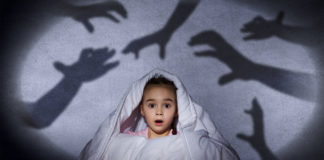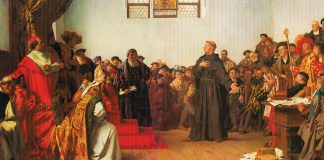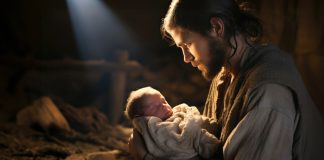The Christmas invasion
They’re singing carols. Putting up fairy lights and mistletoe and fake snowflakes. The stores are full of Crosby, tinsel and Bublé. Yes, Santa’s on his way and, somehow, the list of what’s in his enormous red sack of gifts has appeared on my credit card statement. I know: I’ve checked it—twice!
The greatest love
The word sacrifice is not really a pleasant word. When you hear it, you may think of weird archaic rituals involving blood and animals. You may think of giving up something you love or like to save money or to save your waistline. Sacrifice is not a word we use often, and it’s often used with negative associations. But in a strange twist, the action...
Reformation: The real face of Christianity
The Great Reformation was not a simple schism within Western Christianity. It was not just a religious and political movement. The Protestant Reformation, with its particular spirit and principles, was, first and foremost, a return to the true source and values of Christianity—an attempt to restore.
The uncertainty of the religious man
Pliny the Elder wrote, in Naturalis Historia, a well-known adage: "Among [mortals] the only certainty there is is that nothing is certain."[1] Few know that Pliny made this statement in a chapter on the gods.
The love that whittles all my fears away
In a psalm that is worth reading on our coldest mornings and in our darkest nights, King David asked some rhetorical questions—“Whom shall I fear? Of whom shall I be afraid?”— questions which our contemporaries would not dare to answer.
Luther’s protest is not over
In January 2014, in what catholic.org called a historic gesture, Pope Francis sent a message of unity, recorded on a mobile phone, to charismatic and Pentecostal leaders attending a conference organised by Kenneth Copeland Ministries.
The angry Christian: How can we free ourselves from destructive anger?
A man is about as big as the things that make him angry – Winston Churchill
Becoming the father of the Son of God
In the history of salvation, few people have received a more unsettling calling than Joseph of Nazareth. After overcoming his initial hesitation, he made a series of decisions born of obedience. He remains a model of mature faith and authentic manhood.
Does God listen to my prayers?
If there is a crossroads where both the path of faith and the path of doubt or unbelief begin, it is prayer.
Is the Bible history?
The Bible is the best-selling book of all time. But while people are aware that the Bible exists, these days relatively few know much about it or have taken the time to actually read it.
Life in the vicinity of death
One night while checking on his patients in a palliative care centre, the therapist risked asking a confusing question to a person whose universe had shrunk to the size of his sickbed: “What brought you joy today?” The answer was immediate: “Being alive.”
The treasure hidden in plain sight
"The kingdom of heaven is like treasure hidden in a field. When a man found it, he hid it again, and then in his joy went and sold all he had and bought that field. Again, the kingdom of heaven is like a merchant looking for fine pearls. When he found one of great value, he went away and sold everything he had...
The Bible as a sign of offence
“‘The days are coming,’ declares the Sovereign Lord, ‘when I will send a famine through the land—not a famine of food or a thirst for water, but a famine of hearing the words of the Lord. People will stagger from sea to sea and wander from north to east, searching for the word of the Lord, but they will not find it’” (Amos...
Gethsemane, the garden of the divine sighs
As soon as the tourists leave the land of the silent agony of Gethsemane, their lives return to normal, and the garden where the Son of God sobbed in indescribable pain, misunderstood and unsupported even by His closest disciples, sinks back into oblivion.


























